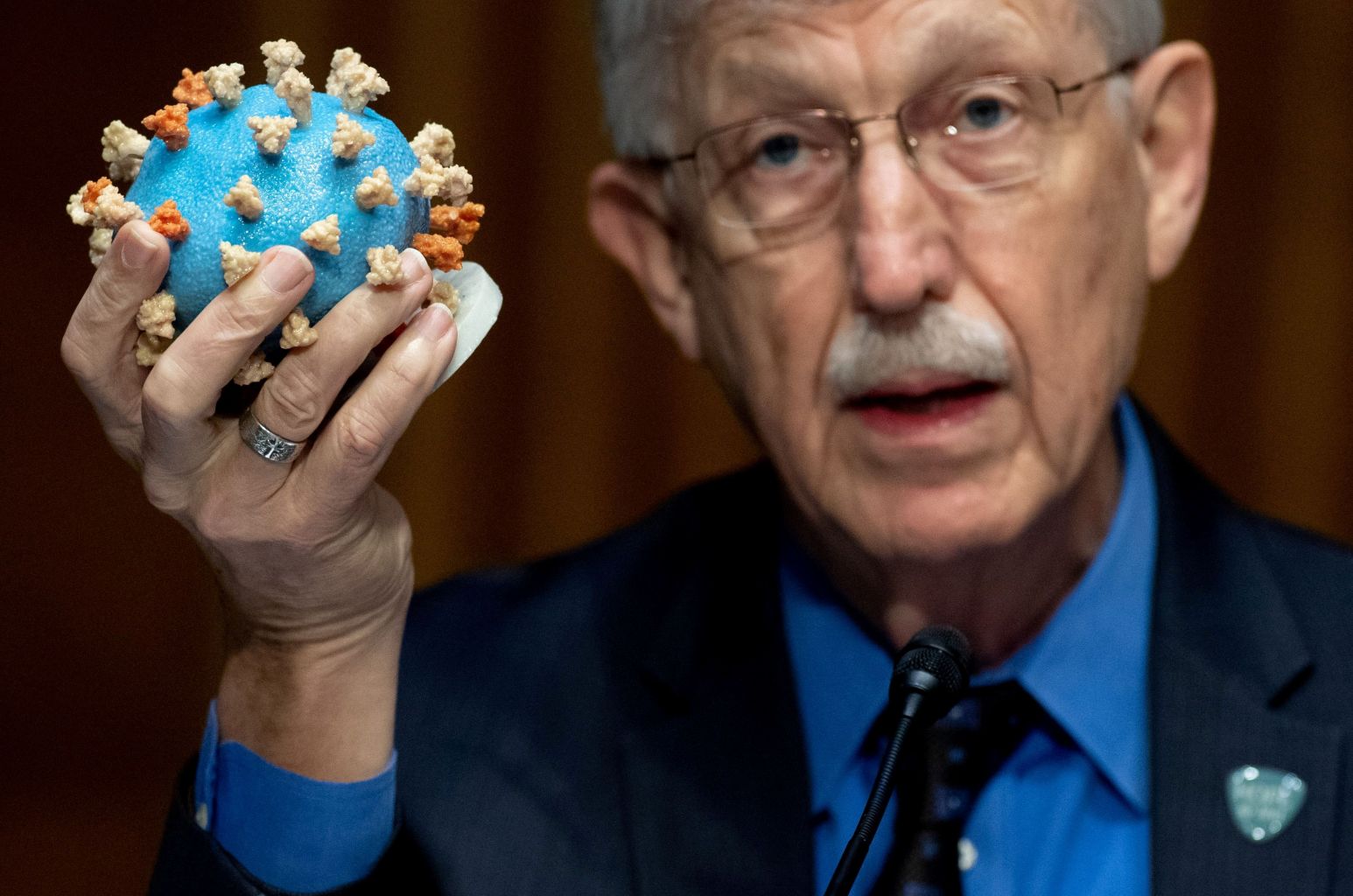British study says insect spray chemical can kill coronavirus, but unclear if it's any different from hand-washing
Sign up now: Get ST's newsletters delivered to your inbox

A July 2020 photo shows Dr Francis Collins, director of the US National Institutes of Health, holding up a model of Sars-CoV-2, known as the novel coronavirus.
PHOTO: REUTERS
Follow topic:
LONDON (AFP) - A chemical used in insect repellent can kill the strain of coronavirus that causes Covid-19, according to a preliminary study by Britain's defence laboratory published on Wednesday (Aug 26).
Scientists at the Defence Science and Technology Laboratory (DSTL) found that Citriodiol, the active ingredient in repellents such as Mosi-guard, had anti-viral properties if mixed with the virus in the liquid phase and on a test surface.
"Mixing a virus suspension with Mosi-guard spray or selected constituent components resulted in a reduction in Sars-CoV-2," said the study.
At a high concentration, "Mosi-guard gave a significant decrease... resulting in no recoverable virus," it added.
But it is not clear if the spray would make any practical difference beyond frequent washing of hands with soap and water, and the use of sanitisers with 60-95 per cent alcohol.
Citriodiol is made from oil in the leaves and twigs of the eucalyptus citriodora tree, which is found in Asia, South America and Africa, and is already known to kill other types of coronavirus.
The British study has not been externally peer-reviewed, with the Ministry of Defence saying it was intended to act "as the foundation for other scientific bodies who are researching the virus and possible solutions".
"DSTL is hopeful that the findings in this research can be used as a springboard for other organisations to expand and develop the research, as well as to confirm the findings in this publication," it said.
Britain's Defence Secretary Ben Wallace in May said the country's armed forces were being given the insect repellent to offer potential protection against the coronavirus.
He said a Citriodiol-based spray had been given to personnel after the Surgeon-General advised it would "do no harm" and should be used as a precautionary "additional layer of protection" against exposure to the virus.

